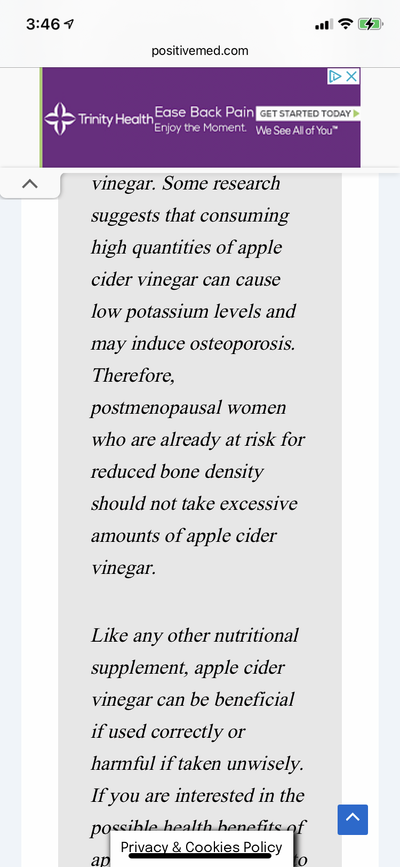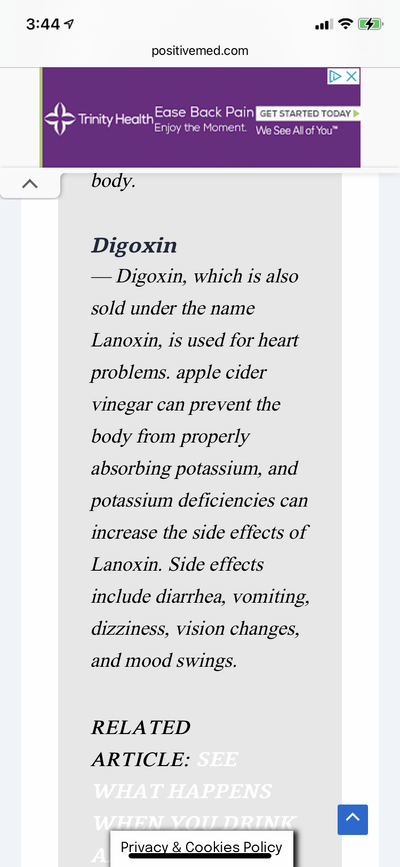- Thread starter
- #24
Oh. This needs more looking into before I start taking much apple cider vinegar. I was about it for other reasons - I'm trying to get myself ready to be a kidney donor (lol, preferable a live donor).
The transplant center cares about the cholesterol levels of the donors. That is what is keeping my daughter from qualifying and my levels are iffy sometimes. I know cutting exercising more and out junk food is the way to go but I was looking at acv for other reasons when I saw that lowering ldl and raising hdl is one of the claims for acv that has more science evidence behind it that most claims. According to a website I know nothing about.
The transplant center cares about the cholesterol levels of the donors. That is what is keeping my daughter from qualifying and my levels are iffy sometimes. I know cutting exercising more and out junk food is the way to go but I was looking at acv for other reasons when I saw that lowering ldl and raising hdl is one of the claims for acv that has more science evidence behind it that most claims. According to a website I know nothing about.





